


AUGUST 2024




AUGUST 2024
Operated in support of the Kenya Wildlife Service, Sheldrick Wildlife Trust's Aerial Unit monitors for illegal activity from the skies and offers rapid response assistance in anti-poaching operations, human-wildlife con�ict, veterinary treatments, orphan rescues, and all manner of �eld emergencies.
This report details Aerial Unit activities for August 2024
27,678
Hours �own:
219
27,214
Kilometres �own: Tsavo East, Tsavo West, Chyulu Hills, Kishushe Ranch, Mbulia Ranch, KARI Ranch, South Kitui National Reserve, Kulalu Ranch, Galana Ranch, Kuranze Ranch Areas patrolled:
The Aerial Unit attended to eight veterinary cases in August, all of which were treated successfully. Patients included two elephants with spear wounds, two young elephants with snares, two bull elephants with poisoned arrow wounds, and two bull elephants with injuries from �ghting The worst of these cases was a bull elephant the team had spent many hours searching for the previous month. He had initially been suspected to be dragging a log due to snaring, however when he was �nally located, there was nothing visible to indicate an active infection, and the assumption was made that he had an old injury on his leg
In August, rangers discovered a large, solitary tusk, which appeared to have literally fallen out of the socket. The owner of the tusk was tracked and con�rmed to be the same elephant that had been seen in July. A small injury was visible on the face above the missing tusk Due to his location in the community and the fact that he attacked a community member that night, the decision was made to translocate him back into the protected area while simultaneously treating him. The SWT �xed-wing located the bull, who was darted from a helicopter, treated, and translocated to the nearby KARI Ranch on an SWT crane truck Behind the seemingly small wound on his face was a huge infection, with several litres of pus Although the treatment and translocation were successful, a few weeks later, the bull succumbed to the infection and died.
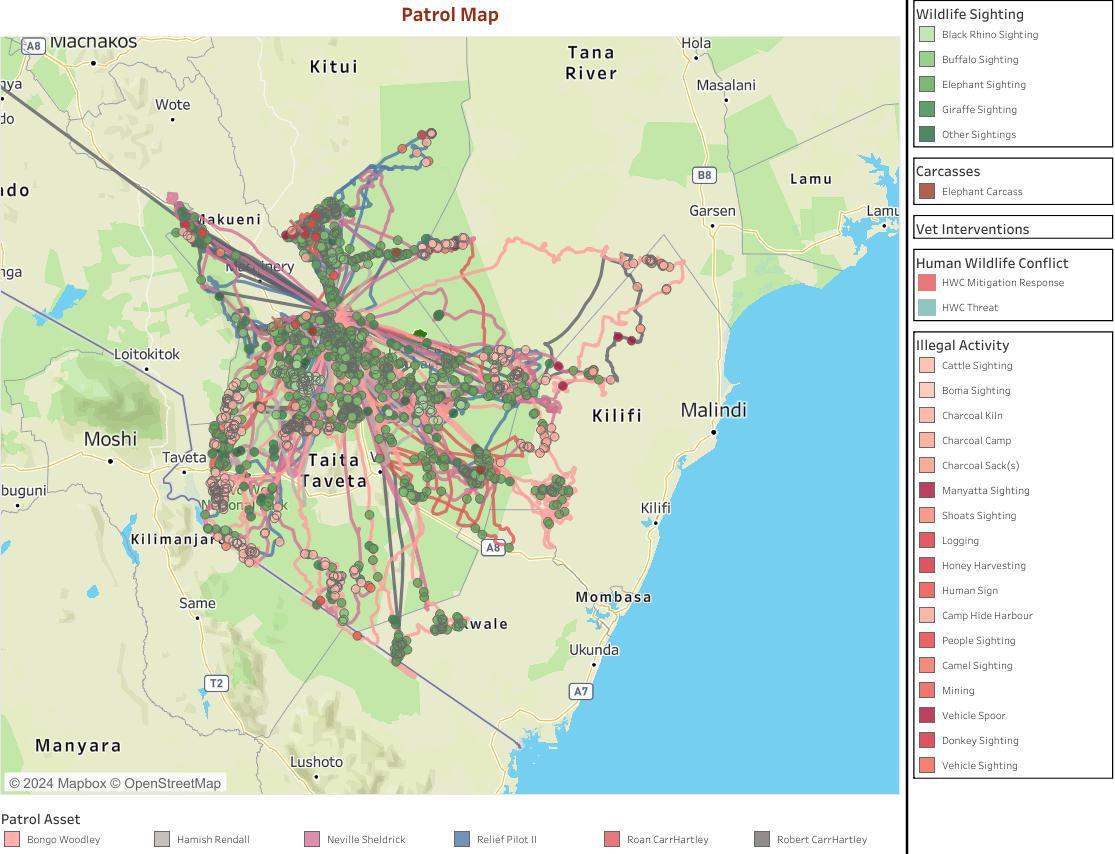

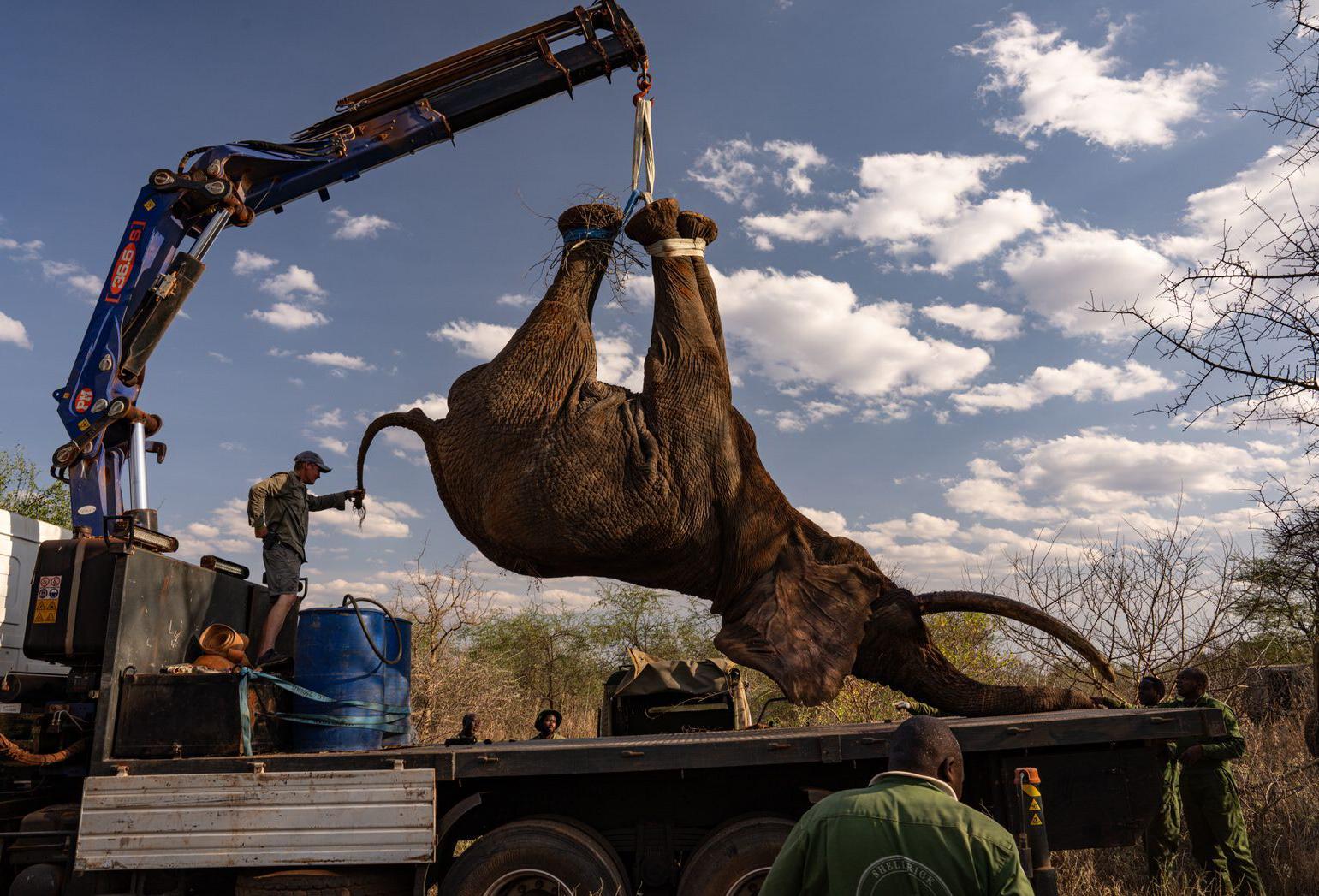

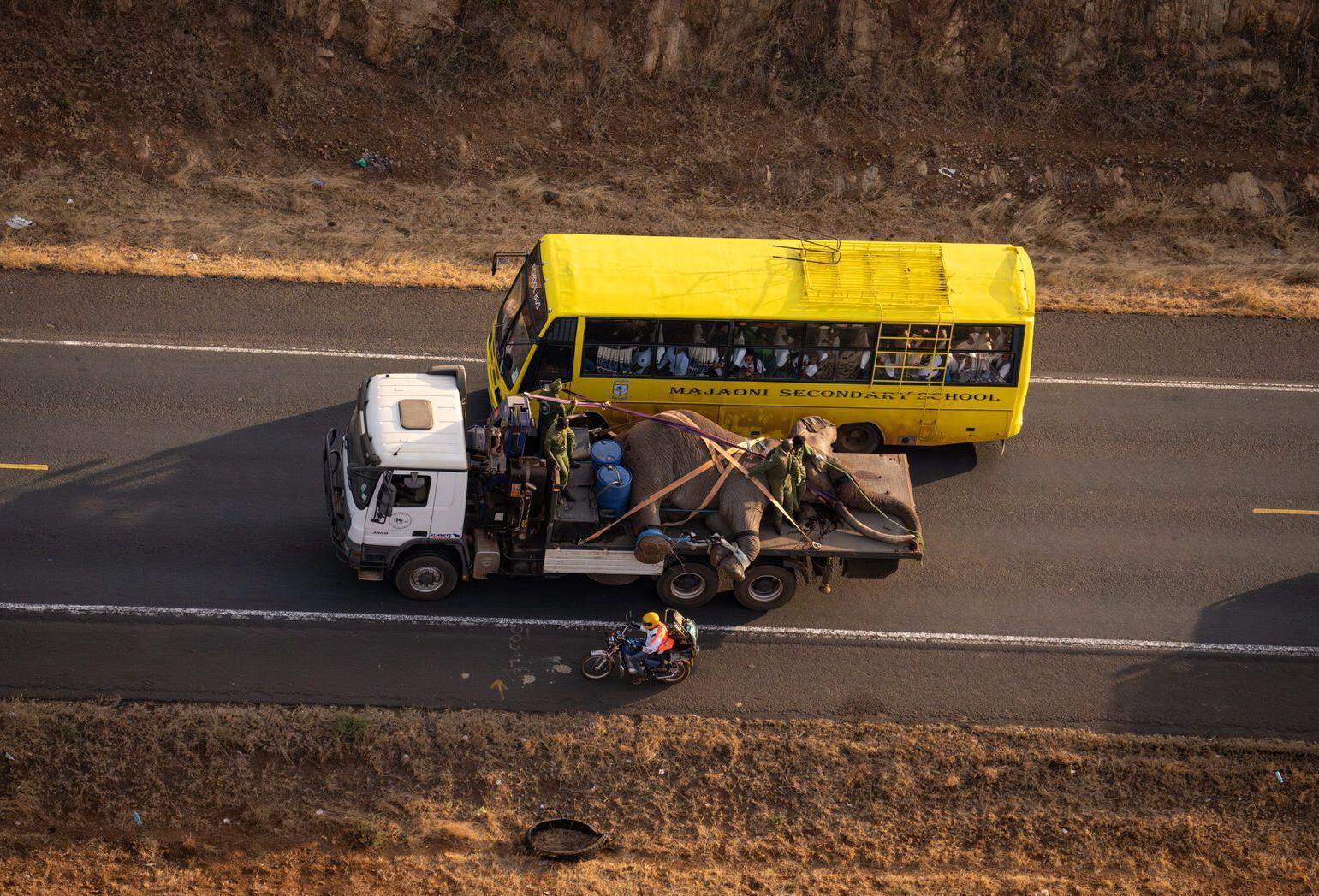
In addition to the above veterinary treatments, the team also attended to a rescue operation of an elephant mother and her calf, who had fallen into a well on Kuranze Ranch near Tsavo West. With KWS/SWT Mobile Vet and SWT grader on site, the pair were successfully pulled out onto dry land
A human rescue was also conducted after an elderly man was spotted alone and lost in KARI Ranch during a routine aerial patrol. Fortunately, a ground team was nearby, and they could be guided by the aircraft to the man’s location where they were able to offer him assistance He had been trying to get home when he became confused and disoriented and wandered into the ranch.
There has not been much change in the situation of livestock in the Parks other than the usual ebbs and �ows as our aircraft spot new livestock incursions, and KWS rangers do their best to repel the livestock and their herders from the park. In general, there has been increasing pressure from livestock in recent months, but a steady decline over a larger timescale. The positive news is that Chyulu Hills NP continues to be livestock-free for several months now, despite August historically being one of the worst months for livestock Livestock incursions in Tsavo West were also limited to a relatively small portion of the park, which is encouraging.
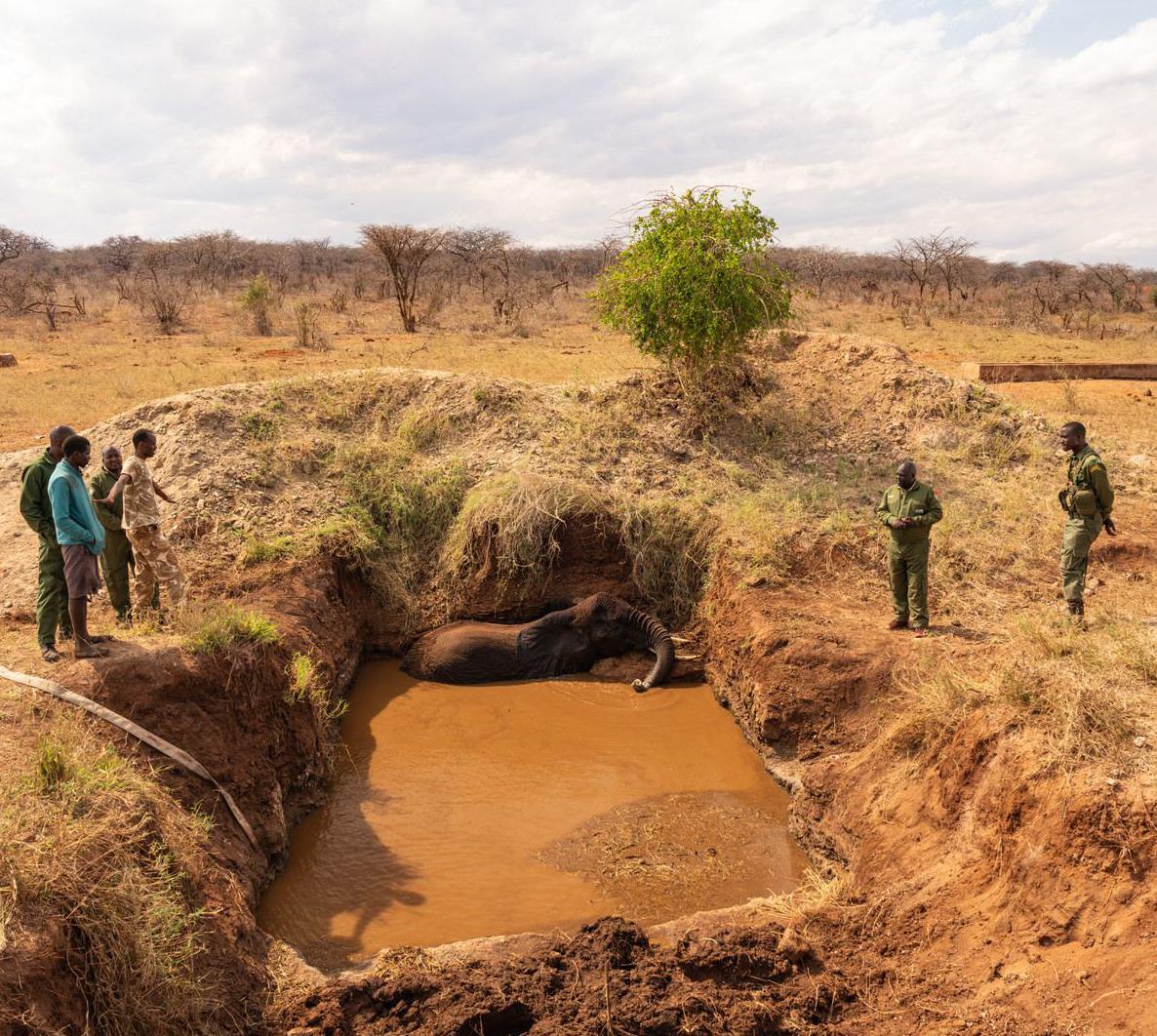

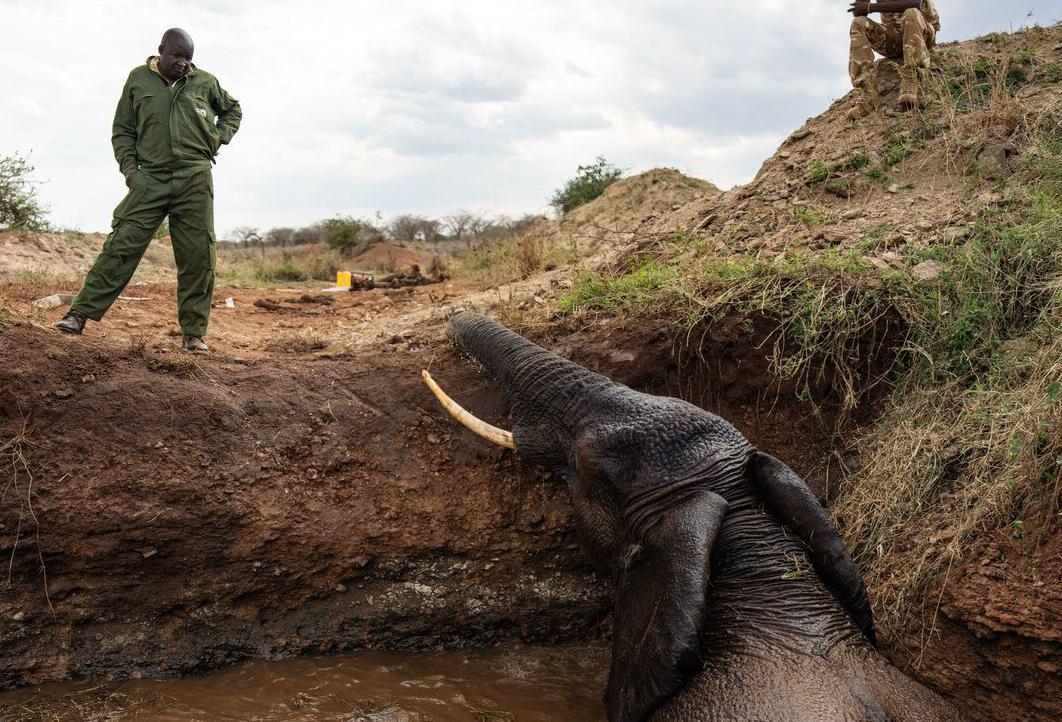
Only three poaching incidents were observed by the Aerial Unit in August. Motorbike tracks were seen during a helicopter patrol on one occasion and ground teams followed them to a stash of snares, a bow, and �ve bird traps. No suspects were seen On another occasion, after ground teams had followed tracks to the Tsavo River, suspects were seen and unfortunately made an escape A helicopter was called out and successfully located a path on the boundary of the fence where the suspects had exited. Ground teams were then airlifted to the site to investigate.
The third incident involved an active poachers’ camp �rst spotted during a routine �xed wing patrol The Canine Unit was immediately deployed by helicopter, but no suspects were found. Tracks were followed away from the camp but dark soon fell and the team were unable to follow them to the suspect’s location. A water container and several empty sacks, mostly likely intended to carry bushmeat, as well as two torches, were destroyed at the camp While not direct evidence of poaching, two other camps were discovered associated with nearby honey harvesting activity, with some signs of poaching occurring as well.

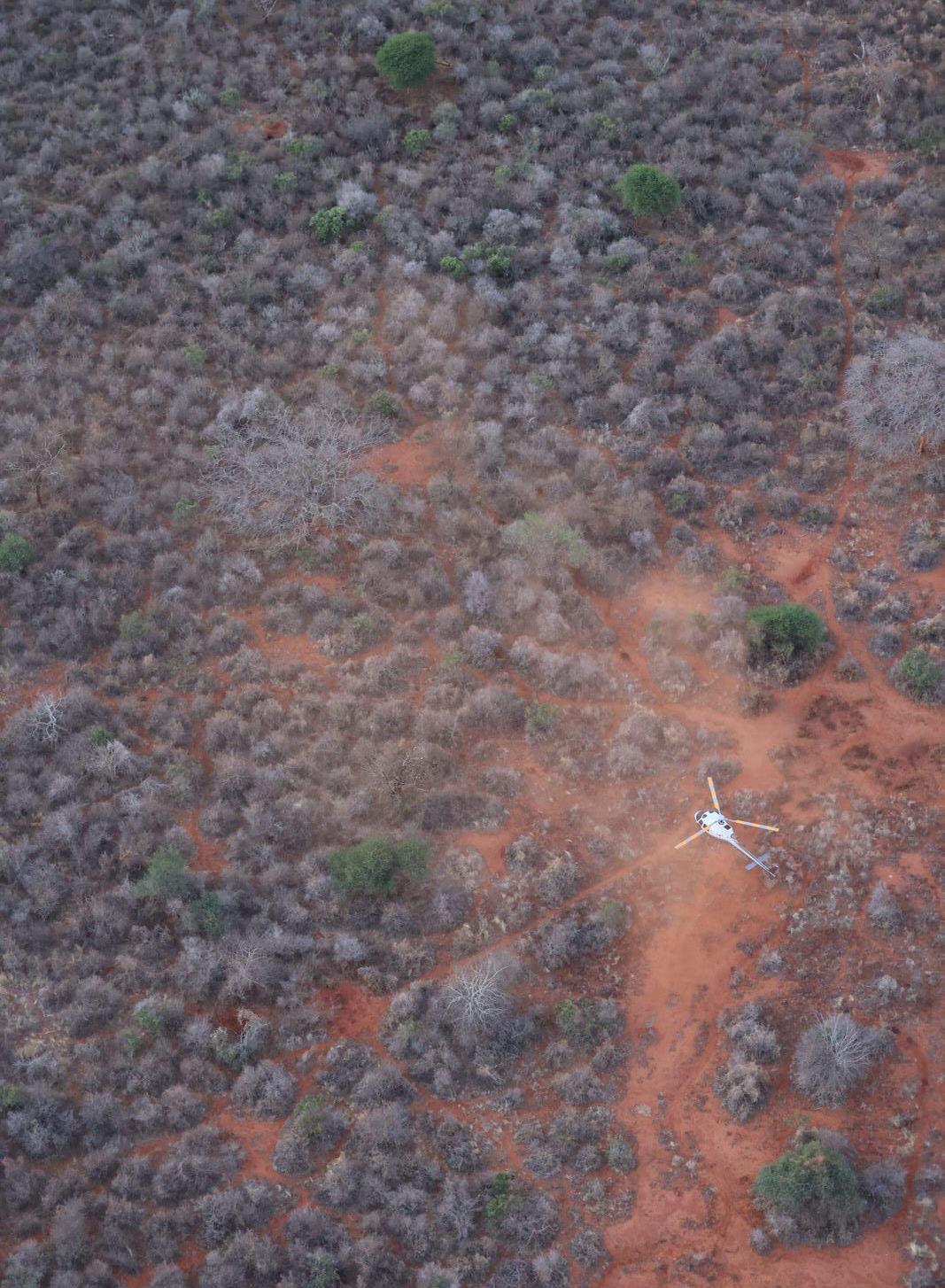
Dozens of charcoal kilns ranging from small-scale operations to large, commercial operations were observed during aerial patrols, with most of these being outside of the Parks and on bordering ranches. During a helicopter patrol, one charcoal kiln was discovered in Tsavo East and a subsequent arrest was made Two charcoal camps discovered in South Kitui National Reserve also led to the arrest of three individuals and the con�scation of two motorbikes. Two active, illegal mines were also sighted in August, but no arrests were made.
Human-elephant con�ict was limited to two cases responded to by SWT helicopter during the month, in addition to the treated elephant mentioned above. One 'problem bull' was successfully pushed back into Tsavo East through a break in the electric fence, and another attempt nearby was unsuccessful.
Fire season is beginning to pick up The Aerial Unit was called out to respond to four separate �res Two of these took place along Mombasa Highway and were fought by the SWT helicopter with a Bambi bucket. The second �re is suspected to have been ignited by a discarded cigarette. The �rst was set intentionally by a man who was spotted from the air by our helicopter and apprehended It was later discovered that he was mentally unwell

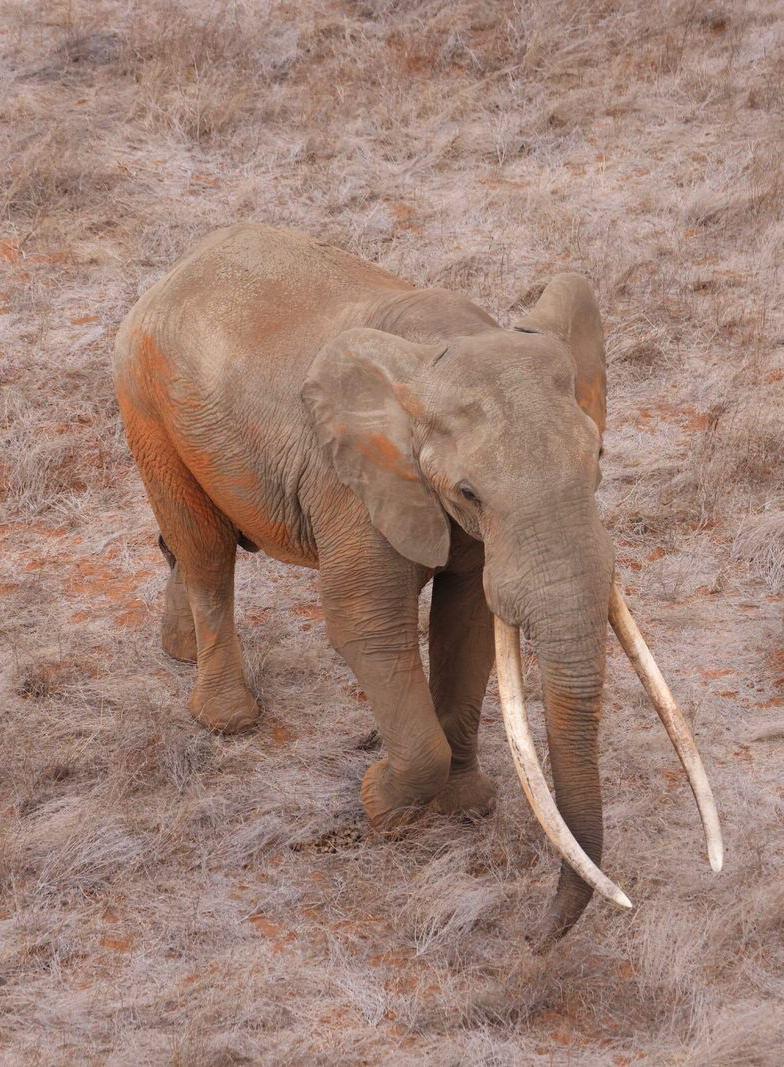
Highlights from the month include multiple leopard and cheetah sightings as well as wild dogs, hirola, and lions; including two lions that were recently translocated into Tsavo from Laikipia in the north of Kenya.

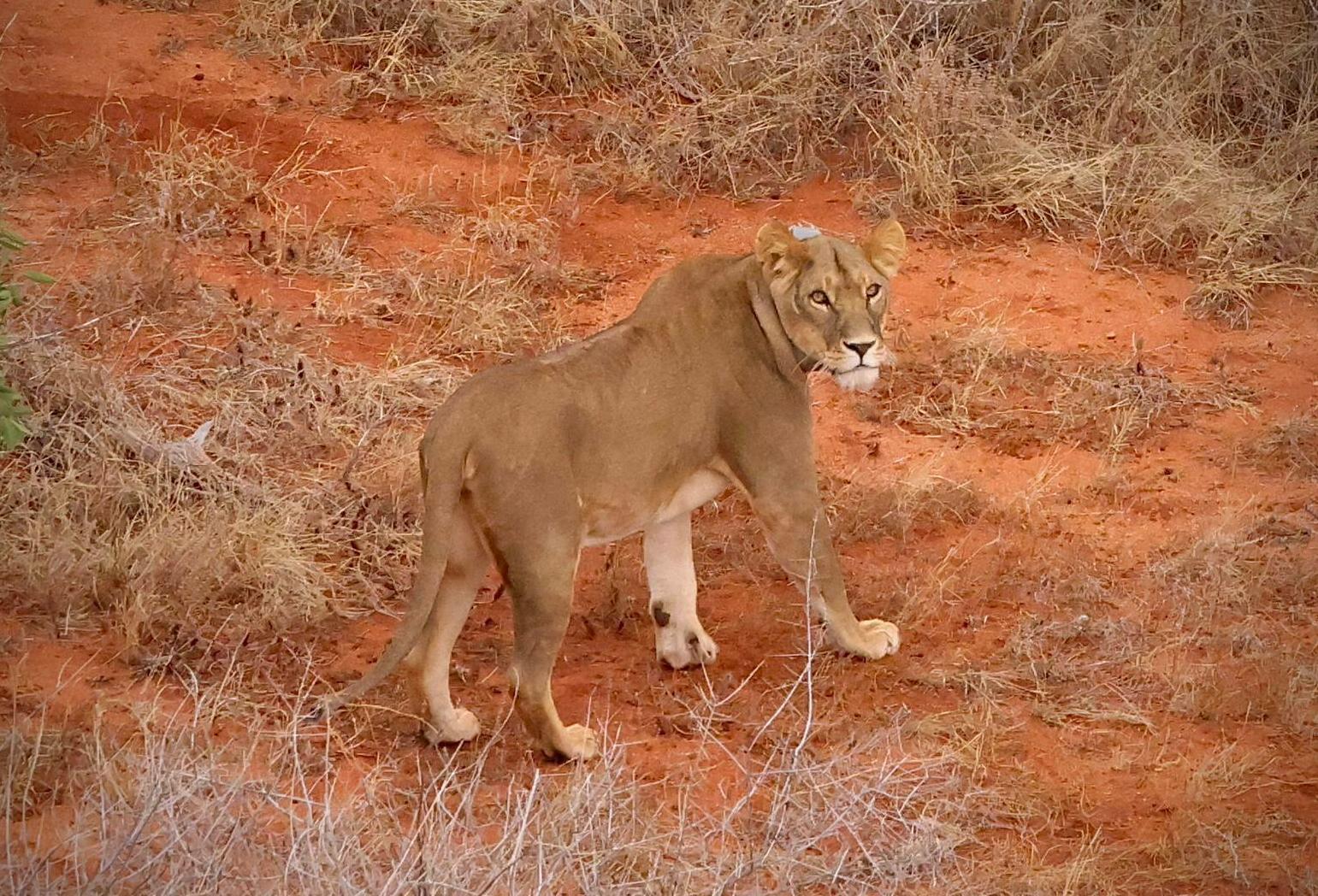

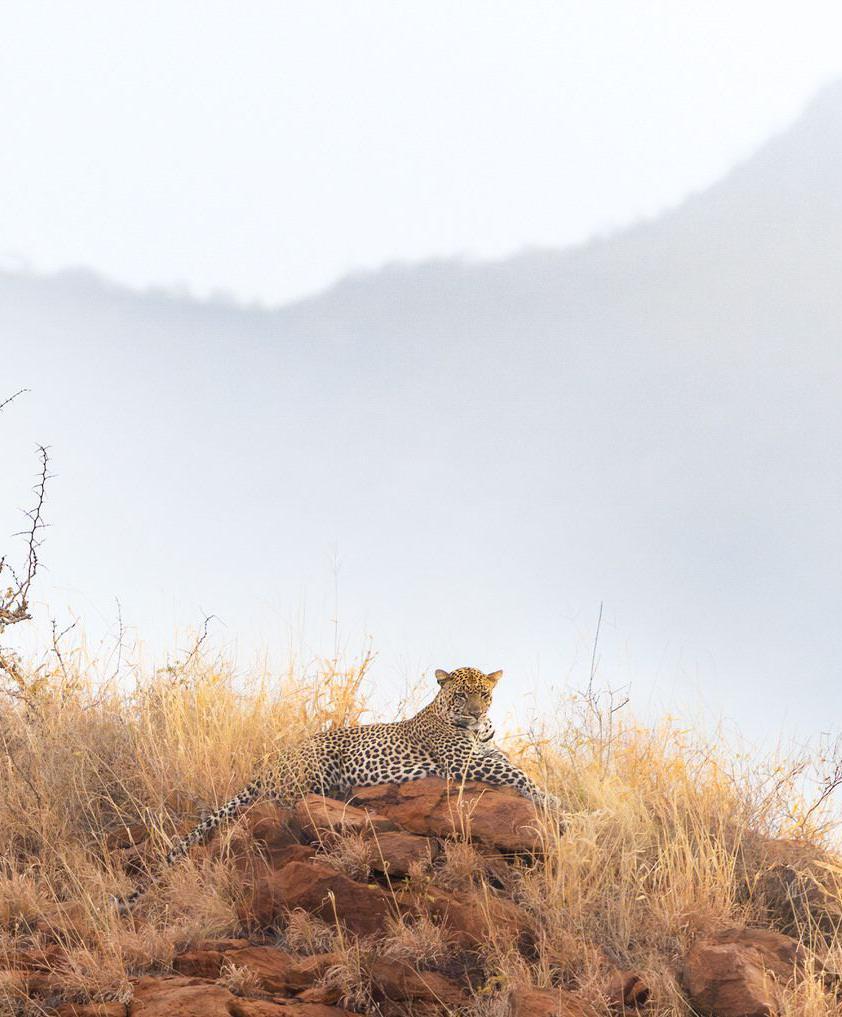

The Aerial Unit, as with all Sheldrick Wildlife Trust's conservation projects, is a donorfunded initiative Thank you to our global supporters, who help us secure Kenya's habitats for the future and make animpactinthe �eld,eachand every day
2024 The David Sheldrick Wildlife Trust